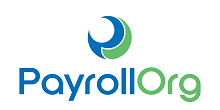Recent technological advances and an increase in the number of workers in the gig economy have fueled interest in faster payment methods like earned wage access (often referred to as on-demand pay). With earned wage access (EWA), workers are able to access their pay when they want, rather than according to a scheduled determined by the employer. This interest has spread beyond those involved in the gig economy to employers and employees in "traditional" businesses, allowing employees to gain access to wages earned before payday. However, the concept of EWA raises many questions for employers, including when the actual date of payment occurs for employment tax withholding, depositing, and reporting purposes.
PAYO Report: Understanding Earned Wage Access and Payroll (2nd Edition)
Earned wage access (EWA) programs in which employees can received earned pay before their regularly scheduled payday have become a more established business practice and part of the benefits package offered to employees. When EWA programs are used effectively, employees can gain greater financial security. These programs can help employees with the misalignment of expenses between paydays but are not a complete solution to employees' financial problems.
PAYO's Understanding Earned Wage Access and Payroll report contains everything you need to know about employer-integrated EWA programs . This EWA report helps to breakdown the information for payroll professionals and government decision-makers.
Key topics include:
- A step-by-step guide to selecting an EWA provider
- The legal and regulatory framework for EWA
Download Report
Links:
- Consumer Financial Protection Bureau, Compliance Assistance Sandbox (CAS) approval order to a service provider regarding specific aspects of some of its earned wage access (EWA) products, (12-30-20)
- Consumer Financial Protection Bureau, Advisory Opinion on Earned Wage Access (11-30-20)
- U.S. Department of the Treasury, General Explanations of the Administration's Fiscal Year 2024 Revenue Proposals, 3-9-23. Treasury proposes to clarify tax treatment of on-demand pay arrangements.
- PAYTECH, April 2024, EWA Special Section (pages 22-24; 26-27)
Resource Links:
- Guide to Successful Electronic Payments (available as an eBook, which is free for members)
- Guide to State Payroll Laws, §2.10 – Earned Wage Access
